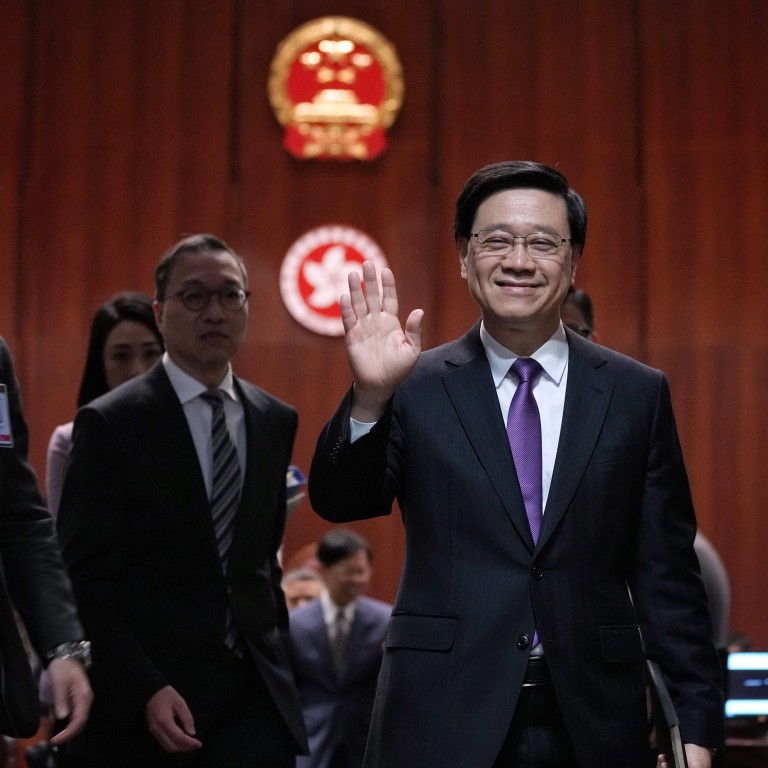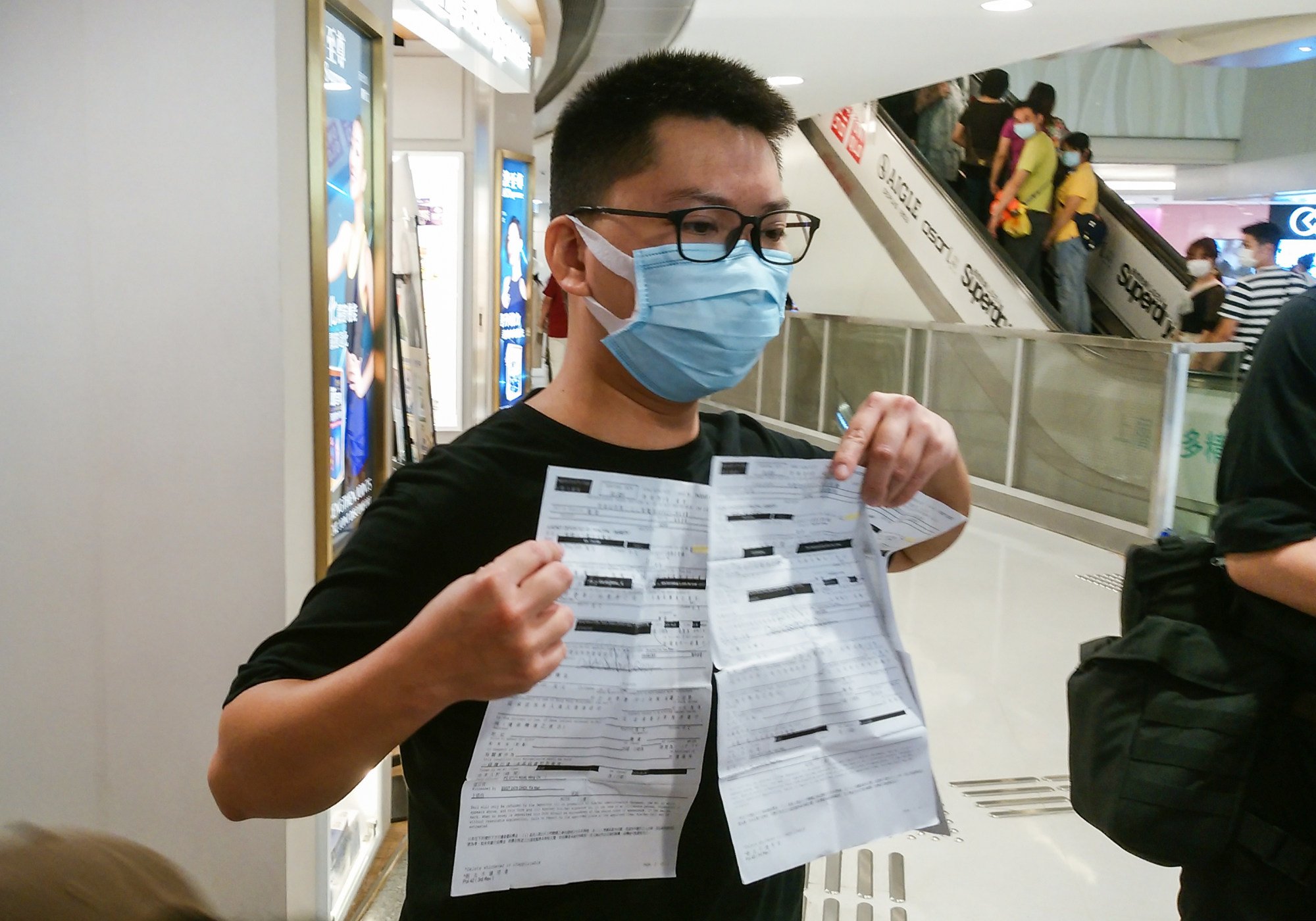
‘Do not test the law’: Hong Kong’s John Lee warns national security prisoners will find it hard to get early release after Article 23 legislation
- City leader says sentences will only be reviewed if correctional services commissioner believes reduction is not detrimental to national security
- ‘This is exactly what I want to tell the public: do not try to do any behaviour or activities that endanger national security … do not try to test the law,’ he adds
The new legislation, mandated under Article 23 of the Basic Law, the city’s mini-constitution, stipulates that a prisoner convicted of national security offences “must not be granted remission” unless the commissioner of correctional services is satisfied the move will not compromise national security.

Lee said the government must let everyone know that those committing crimes that endangered national security would not receive sentence reductions under normal circumstances.
“The prisoner’s sentence will only be reviewed if the commissioner of correctional services believes that a reduction will not be detrimental to national security,” he said.
“This is exactly what I want to tell the public: do not try to do any behaviour or activities that endanger national security … do not try to test the law,” he said.
Ma was originally sentenced to five years and nine months in 2021 for secession offences committed during the protests. His sentence was later reduced to five years on appeal.
The Post had learned that he was originally scheduled to be released on Monday for good behaviour. Previously, under a general rule, a prisoner’s sentence could be cut by one-third for good conduct.
Absconders likely to be first target as Hong Kong’s Article 23 law takes effect
Recapping the rule, the city leader said amendments to the post-release supervision of prisoners were made in accordance with the new law.
The new rule applies to those convicted of offences endangering national security and serving jail time, no matter whether the sentences were imposed before, on the day, or after the ordinance came into force on Saturday, he added.
He said those not satisfied with the arrangement could pursue legal action and leave it to the court to handle.
Ma was convicted of inciting secession on 20 occasions in a three-month span, shortly after the enactment of the Beijing-imposed law.
He had chanted slogans such as “Hong Kong independence, the only way out”, “Hongkongers, build our country” and “Liberate Hong Kong; revolution of our times” – a signature rallying call of the 2019 protests.
Hong Kong leader vows to bolster intelligence gathering after Article 23 law
Ma had also promoted his political ideals on social media and during interviews with news outlets, where he called on other residents to advocate independence in schools and prepare for the next “revolution”.
He had called himself a “second-generation Captain America”, in reference to a prominent protester who had dressed as the superhero during the 2014 Occupy movement and a riot in Mong Kok in 2016.
The enactment of the ordinance also has implications for fugitives wanted by national security police as they can face a list of sanctions once designated by the security chief as an absconder under a new mechanism.
The clauses were among those approved by lawmakers during 12 days of marathon proceedings to quickly introduce the legislation, which was designed to target five types of offences: treason; insurrection; theft of state secrets and espionage; sabotage endangering national security; and external interference.

